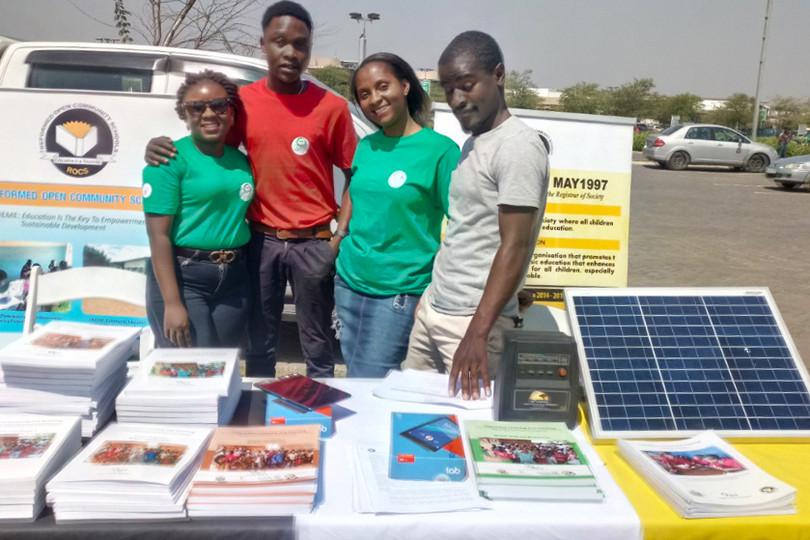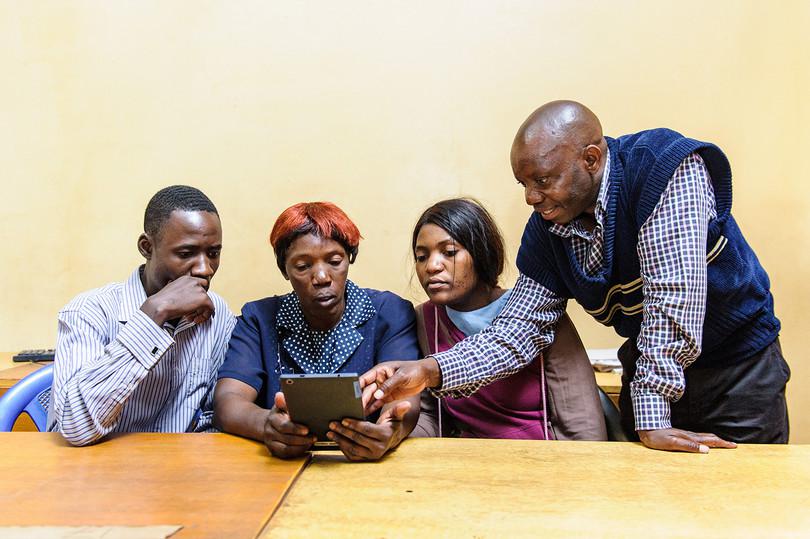About iAct in Zambia
The Roger Federer Foundation’s main implementing partner, ROCS, was trained by the iAct technical partner, Saide, on how to roll the course out, manage the course database and provide technical support to iAct course participants and support structures. The strategy used was to utilise existing district and sub-district structures of the Ministry of General Education (MoGE).

After the initial training of ROCS facilitators, ROCS recruited and trained other implementing NGO partners who worked in several geographic areas, namely ZOCS, DAPP, PAF and Diakonia.

The NGO partners in turn trained MoGE officials as course facilitators at district and zone (sub-district) level. This entailed the involvement of District Resource Centre Coordinators (DRCCs), District Education Standards Officers (DESOs) as support facilitators, and Zonal In-service Coordinators (ZICs) as frontline facilitators working directly with community school teachers.

A one-day orientation of teachers in each zone was carried out by ZICs. The orientation involves demonstrations on how to use the tablet, the study guide and role plays on how to work through the course in groups, register for the self-tests and how these would be monitored by course supervisors.
For monitoring course progress and identifying challenges, after each self-test, the course generates a code that needs to be sent to a prescribed phone number via sms. The code sent generates information in the database and informs supervisors at the supporting organisation, at the zone and at district level, of progress in the course. If users are not registered with their geographical details by the facilitators in the database, they can still benefit fully from the course, but the support group cannot contact them in case of low activity, indicating possible challenges in using the app. It is therefore a huge advantage to register for the sms communication and to send codes consistently. For guidelines on registration and instructions for sending codes after each self-test, check the instructions on how to install the course app.
After the orientation, teachers were given the tablet, study modules and recharging equipment to take back to their schools and embarked on the course in weekly group activities. The table below outlines how the course is delivered.
| Activity | Participants | Venue | Duration | Resources |
|---|---|---|---|---|
| Training of NGO implementing partners | Trainers Database administrators | Central location in the country | 3 days | Training guides and tablets |
| Training of trainers | District ministry officials | District location | 3 days | Training guides and tablets |
| Training of Zonal Facilitators | Zonal ministry officials | Zonal location | 1 day | Training guides and tablets |
| Orientation of iAct students | Teachers in a particular location | Zonal location | 1 day | Training guides and tablets |
| Teacher study groups | Not more than five teachers | School | Weekly studies and self-test | 1 tablet per group of not more than five iAct students |
| Supervision of weekly self-tests and technical support | District and zonal supervisors | Central database located at district or national level | Weekly | Central database and technical support staff at zonal level |
| Refresher | Teachers in a particular zone | Zonal location | 1 day | Training guides and tablets |
| Close out | All partners and participants | Zonal location | 1 day | Central database and technical support staff at zonal level |
